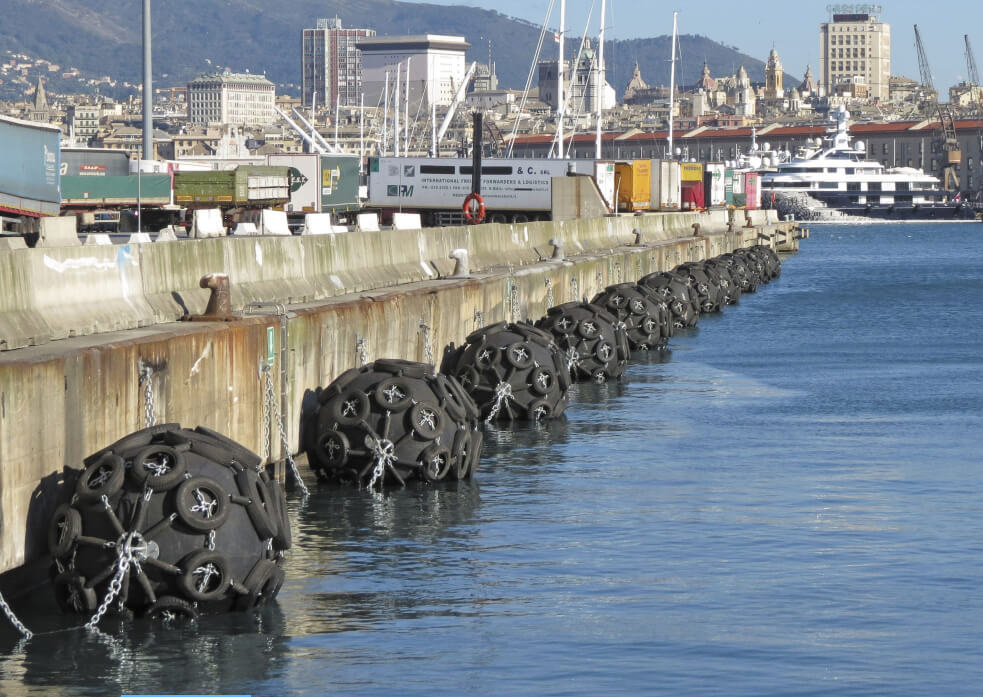Yokohama Pneumatic Rubber Fenders (YPRFs) have emerged as revolutionary technologies reshaping vessel handling and protection in ports and harbors worldwide. Engineered with advanced designs and durable materials, these fenders offer unmatched performance and reliability across diverse maritime applications. This article explores the extensive applications and myriad benefits that Yokohama Pneumatic Rubber Fenders bring to the maritime industry.

Applications of Yokohama Pneumatic Rubber Fenders
Yokohama Pneumatic Rubber Fenders find application across various sectors of the maritime industry owing to their unique design and resilient construction.
Commercial Ports: These fenders are integral to berthing and mooring operations in commercial ports, strategically placed along quaysides to absorb kinetic energy during vessel impacts. From small fishing boats to massive container ships and oil tankers, these fenders accommodate vessels of all sizes and types.
Oil and Gas Terminals: Yokohama Rubber Fenders excel in challenging conditions at oil and gas terminals, providing reliable protection during loading and unloading activities, thus ensuring the safety and integrity of vital installations.
LNG Terminals: Specifically designed for LNG terminals, Yokohama Pneumatic Rubber Fenders offer excellent shock absorption and durability, critical for safe handling of LNG carriers during berthing and cargo transfer.
Offshore Platforms: These fenders ensure the safety of vessels during crew transfers and supply operations in offshore installations, enduring severe seas and impacts to protect both personnel and equipment.
Ship-to-Ship Transfer Operations: Facilitating safe and efficient ship-to-ship transfers, Yokohama Pneumatic Fenders ensure smooth vessel positioning even in adverse weather conditions, minimizing accidents and environmental risks.
Floating Docks and Pontoons: Used in floating docks and pontoons, these fenders protect vessels during mooring and docking, minimizing damage risks to both vessels and structures.

Benefits of Yokohama Pneumatic Rubber Fenders
Exceptional Shock Absorption: Designed to absorb kinetic energy, these fenders minimize impact forces, reducing damage to vessels and infrastructure, thus lowering repair costs and downtime.
Versatility and Customization: Available in various sizes, diameters, and lengths, Yokohama Pneumatic Rubber Fenders can be customized to meet specific port requirements and accommodate diverse vessels, ensuring suitability across different maritime sectors.
Low Maintenance: With minimal maintenance requirements compared to traditional systems, these fenders offer long-term reliability and cost savings for port operators due to their durable rubber construction and resistance to corrosion and UV degradation.
Quick and Easy Installation: Featuring a modular design, installation of pneumatic rubber fenders is swift, minimizing downtime and disruptions to port operations, contributing to overall efficiency.
Proven Reliability: Yokohama Rubber Fenders undergo rigorous testing and quality control measures, ensuring compliance with international standards and instilling confidence in port operators and vessel owners alike.
Buoyancy and Stability: Providing buoyancy and stability during berthing and mooring, these fenders mitigate risks and ensure the safety of crew and cargo, maintaining a stable environment for vessel operations.
Environmental Friendliness: Made from environmentally sustainable materials, Yokohama Pneumatic Fenders align with industry initiatives for sustainability, offering a low environmental impact option for maritime infrastructure projects.
Conclusion
Yokohama Pneumatic Rubber Fenders have transformed maritime safety and efficiency, playing a vital role in safeguarding vessels, personnel, and critical infrastructure worldwide. With their innovative design and unparalleled reliability, these fenders continue to redefine standards in the maritime industry, ensuring safer and more efficient operations in ports, terminals, and offshore installations.






Comments (0)